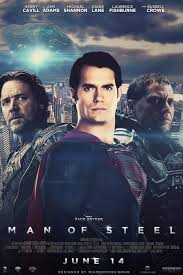Fill the Void
Posted on June 13, 2013 at 6:25 pm
B+| Lowest Recommended Age: | High School |
| MPAA Rating: | Rated PG for mild thematic elements and brief smoking |
| Profanity: | None |
| Alcohol/ Drugs: | Drinking and drunkenness, smoking |
| Violence/ Scariness: | Sad offscreen death |
| Diversity Issues: | Role of women in traditional orthodox community |
| Date Released to Theaters: | June 14, 2013 |
A young woman about to choose the man she will marry is torn between her own desires and the wishes of her devout family, ultra-Orthodox Jews. We know where the American version of this story would go — the triumph of individual happiness over the antiquated strictures of the community. But Israel’s official entry for the foreign language Oscar is a sympathetic, layered portrayal, rich with detail, that earns its more complex and resonant conclusion.
Writer-director Rama Burshtein was born in the United States, grew up in Israel in a non-Orthodox home, studied film, and chose to become “baal teshuva” or one who “returns” to the the practice of traditionally observant Judaism. This movie reflects her deep understanding of both liberal and conservative notions of religious practice as a connection to the divine and the many variations in between. She is a gifted filmmaker who understands the way the tiniest details tell the story and evokes utterly natural, intimate performances from her actors. She shows us a world of very strict and demanding tradition, but it is the context for characters who are never caricatured. They are vividly drawn and portrayed with respect and affection.
Like a Jane Austen novel, the primary concern for Shira (a shimmeringly lovely Hadas Yaron) and her family is a propitious match, and the cultural structures for making this decision are clearly defined. In this community, young men and women have no opportunities for interaction until they are identified as potential partners by their parents. Then they have one heart-wrenchingly awkward meeting to decide whether they can spend a lifetime together. As the invariable small plate of cookies goes untouched, there is no shilly-shallying about what they majored in or their favorite music. A few simple questions about their aspirations for family life are all they get.
We first see Shira and her mother sneaking a look at a prospective groom in the aisles of a the grocery store. Shira believes he could be the one. She is excited and happy. But then a terrible tragedy strikes. Her sister, Esther (Renana Raz) dies in childbirth. And then the widower, Yochay (a smolderingly handsome Yiftach Klein) has an offer to marry a woman from Belgium, which would mean moving there and taking the baby with him. The only way to keep Esther’s child close to the family is for Yochay to marry Shira.
Suddenly, Shira has to cope with an entirely different set of pressures and an entirely new sense of power. She has to sort through her feelings without any real opportunity to learn how Yochay is responding. Could he want her? Or is he being forced? What would it be like to be married to someone who has not just been married before, but who was married to her sister?
American films have ranged from clumsy to dreadful in portraying the Orthodox community, with Renee Zellwegger in “A Price Above Rubies” and Melanie Griffith’s “A Stranger Among Us” as notorious failures. Burshtein’s perspective as someone who chose that life is refreshing in its focus on the lives, relationships, and choices of the characters. The details of their religious practice draw us in as illumination, not anthropology. The dynamics of Shira’s parents’ relationship play out in the celebration of Purim, a holiday less observant Jews may think of as a minor celebration for children to wear costumes and shake noisemakers. For these people, it is also a time to encourage those the community who needs help to ask for it and for those who can to give it. It is Shira’s father who receives the requests. But it is her mother who brings the money. And in the oblique discussions they have about Shira’s choice and the factors to be considered, we see the many layers of family, community, and religious observance twined together.
Parents should know that this film includes drinking and drunkenness and brief smoking. There is a sad off-screen death.
Family discussion: What does Shira decide and why? Do you agree? Will she be happy?
If you like this, try: “Ushpizin,” another film about the Orthodox community made by a baal teshuva

